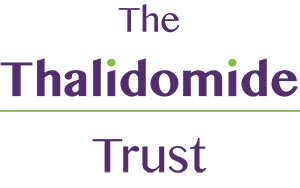What To Do When A Beneficiary Of The Trust Dies
When a beneficiary of the Thalidomide Trust dies there may be additional questions and information required.
Our guide below will take you through what is needed.

Do I need to tell the Trust?
Yes, if a beneficiary of the Trust passes away, please give us a call on 01480 474074 and let us know. We will need to know the following information:
- The date of death
- Your name, address and contact details, as the person reporting the death, and your relationship to the beneficiary
- The beneficiary's next of kin (if known)
- The name of the executor of the beneficiary's estate (if known)
What other information does the Trust need?
To formalise arrangements after a beneficiary’s death, the Trust will require the following:
- A copy of the death certificate
- Grant of probate (this confirms who is the executor of the deceased’s estate)
- Confirmation of funeral details (the Trust will offer to send a representative to attend the beneficiary's funeral and, if they have asked us to do so, we will circulate details to all other beneficiaries)
What support does the Trust offer after a beneficiary’s death?
A member of the Trust’s Management Team will talk to you about what support you require at this difficult time.
We will offer practical and emotional support and, if required, financial assistance with the cost of the funeral.
What happens if the deceased beneficiary had some grant funds remaining that were being held at the Trust?
Beneficiaries of the Trust are allocated two grants each year: an ‘Annual Grant’ and a ‘Health Grant’. If the deceased beneficiary had a remaining balance held at the Trust on either of these grants, the funds will be treated in the following ways:
- Annual Grant: any remaining balance held at the Trust will form part of the deceased beneficiary’s estate, and will be released upon receipt of a death certificate and a grant of probate certificate which confirms the executor of the beneficiary’s Will (if they had one).
- Health Grant: any remaining balance held at the Trust will not form part of the beneficiary’s estate. This is because the Health Grant is a ‘restricted fund’ which was allocated for the named beneficiary to help meet their specific health and wellbeing needs whilst they are alive. Please note: if the beneficiary requested payment of their full Health Grant allocation before their death, then any funds held directly by the beneficiary at the time of death will then form part of their estate.
Memorandum Account
In addition to the Annual Grant and Health Grant, in a limited number of cases, a beneficiary may also have held a ‘Memorandum Account’. A Memorandum Account would have only been allocated to a beneficiary if they lacked the capacity to manage their own financial affairs or if the beneficiary received a lump sum payment as a result of being 'accepted' as a beneficiary of the Trust in recent years.
If a deceased beneficiary held a balance on a Memorandum Account upon their death these funds will:
- not form part of the beneficiary’s estate. This is because the beneficiary is not the actual owner of the funds. Therefore, if there are any unspent or uncommitted funds in a Memorandum Account these will then be treated as general funds of the Trust for the benefit of its beneficiaries.
What happens if the beneficiary had an outstanding Major Advance balance held with the Trust?
A Major Advance is effectively an advance of a beneficiary’s future Annual Grant income to assist a beneficiary with a specific health and wellbeing-related need - for example, purchasing a property, completing adaptations to their home or purchasing a vehicle - when they do not have adequate funds to cover the cost and are unable to borrow funds from an external lender. If a deceased beneficiary has an outstanding Major Advance balance, the Trust will talk to the family (and / or the executor of the estate) about how this will be repaid and agree an appropriate arrangement.
Where can I get further information and advice?
For further information please contact Jeff Prevost (Finance Co-ordinator – Beneficiary Support) on 01480 474074 or by email

